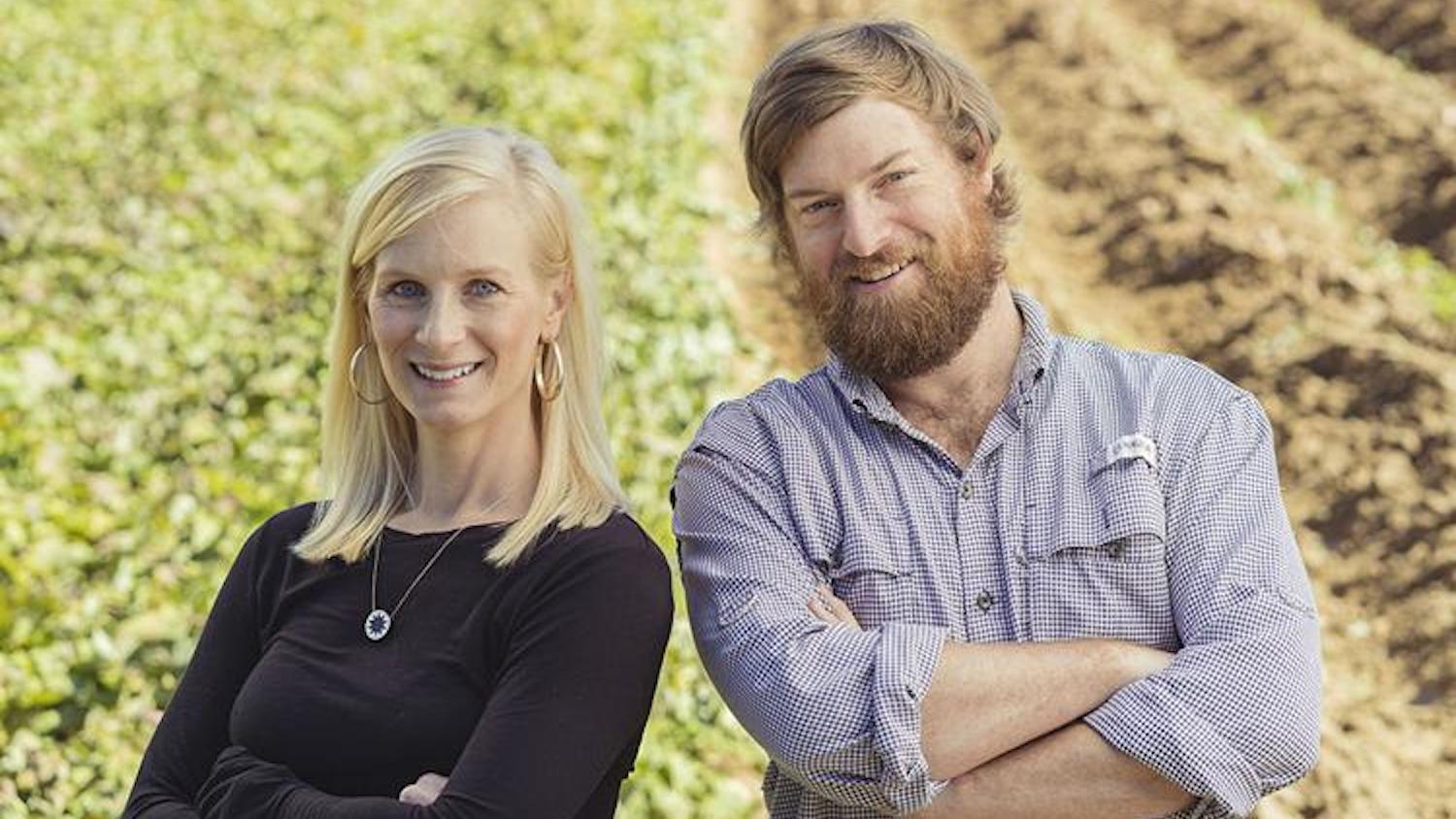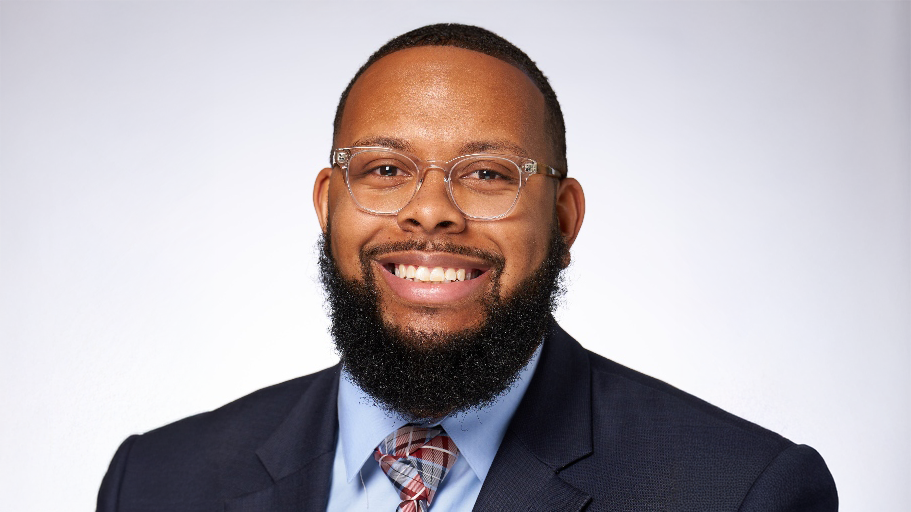By Caroline Barnhill
Brother and sister duo Will Kornegay (’09) and Laura Hearns (’06), both graduates of the Poole College of Management, are making waves in the food industry by combining two of their passions – reducing farm excess and fighting hunger with their company Ripe Revival. How? By taking excess fruits and vegetables from farms that would typically go to waste because they are misshapen or oddly sized and using a proprietary technology that concentrates healthy proteins and fruit compounds and modifies proteins so as not to trigger allergic reactions – all to create protein-packed fruit gummies.
But as any entrepreneur can tell you, starting a new business isn’t for the faint of heart. Hear more from Kornegay about launching Ripe Revival, navigating a company in the midst of a global pandemic, and a few lessons learned along the way…
How did you come up with the idea of Ripe Revival?
Laura and I both worked in the fresh produce industry – actually as competitors – for nearly a decade. We worked for two of the largest sweet potato grower, packer, shipper and processor operations in the country. There we were exposed to immense amounts of experience across the supply chain from the farm to the consumer. Both operations, being so large, were able to experience economies of scale that allowed them to use nearly 100% of their own crops in a very efficient manner.
During our years in the industry, however, we began to see many smaller farmers and family operations that did not have the same luxury and were unable to utilize all of their crops, which severely impacted their efficiency and profitability. They were included in the statistic reporting that up to 40% of U.S. farmers’ crops are lost or left in the field each year due to odd shape, size or other cosmetic defects that make them “unmarketable.” At the same time, one in eight individuals in the U.S. have experienced, or are experiencing, food insecurity – with difficulty finding access to fresh, healthy and nutritious foods.
Our desire was to take our experience and knowledge gleaned from working at large farm operations and find ways to incorporate those principles into a business model where we can make an impact on smaller operations – with a unilateral movement to impact waste and hunger as a community centered on bridging the gap between excess and access.
With a mission to accomplish all this through better-for-you functional foods, we launched Ripe Revival with a line of patented protein gummies that utilize upcycled produce as key ingredients. We received an award from the Kroger Foundation, which allowed us to scale our business while also integrating new strategies into the mix.
What was the hardest part of starting a company from the ground up?
Starting a business from the ground up is very difficult and takes a lot of patience and persistence! There are so many things I could share, as starting a business comes with both tangible and intangible elements that impact success and survival. I believe the two most difficult variables to manage when starting a business, however, are funding and time.
It costs quite a bit of money to start a CPG (consumer packaged good) business or food manufacturing business. Aside from the legal process of establishing the business, we had to invest a significant amount of capital into research and development, equipment and infrastructure, and packaging and inventory – just to name a few. Managing runway on the road to profitability can be very overwhelming and difficult and requires a lot of hard work and strategic planning.
Additionally, the most valuable resource we have is time. There is never enough time in the day to get everything done, and it can be daunting to start a business knowing that this will be the case for quite a while. Learning to allocate time while also maintaining a healthy work/life balance is very difficult – especially with as much risk on the line as we have.
What is something you know now that you wish you knew when you got started?
There are many things that we have learned over the past two years that would have made life much easier had we known them when we first started the business! For starters, knowing that an international pandemic would rock our world a few short months into launching would have been a huge bonus! On a more serious note, I think the reality of unexpected challenges is one of the more critical things that entrepreneurs face when starting a business. There are many unknowns, especially in innovative areas like the ones we are working to address, so taking all experiences, learning from them, and applying them to the future is very important. This goes for good and bad experiences alike. There is much to be learned from both – and we know first-hand that in order to keep pushing forward you have to take that mentality. Learning is how you continue to evolve and adapt your business to consumer demands, industry trends and transitions, supply chain management, and ultimately business development.
What resources do you find most helpful in running a business?
For starters, founders must understand that they cannot do all things. No matter how much we want to be able to do so, it is not physically or emotionally possible. We’ve learned the importance of knowing when to outsource or rely on others for things that may or may not be worth spending our own time on. Take technology – there are so many resources surrounding e-commerce and social media management. Investments in software and marketing professionals have also proven to be very helpful in our journey.
There are also great resources to be found and utilized in organizations whose primary goal is to help small businesses. We have leaned directly on organizations like the SBA (Small Business Administration), the SBDTC (Small Business Technology and Development Center), state and local economic development teams, and both public and private schools or universities. These organizations exist to help, and they offer many programs that small businesses can benefit greatly from. Lastly, there are many opportunities for grants and funding at both the local and national levels. We’ve been very fortunate to have found support from organizations like NC IDEA and The Kroger Foundation that have invested in our team and our mission.
What part of running Ripe Revival has been most challenging? Most rewarding?
Running our business during the COVID-19 pandemic has definitely been the most challenging. The shutdowns and cascading impacts associated with the pandemic crippled our small business, leaving us very much in danger of shutting our doors. Finding innovative ways to pivot our means for survival has required exhausting amounts of energy and resources, but we have been very fortunate. We have both survived and thrived. While we did not expect to have so many sectors of our business, we have been able to develop a more integrated system that has allowed us to grow – and has more importantly allowed us to make a bigger impact on customers and communities in need during such a difficult time.
It has been extremely rewarding to see the community that we have built, and how others’ investment in our products or services has led to greater impact for communities in need. It has also been very rewarding to be a facilitator of nearly four million pounds of fresh produce utilized and millions of pounds being distributed to food-insecure families through partnerships with organizations like the Food Bank of Central and Eastern NC, as well as several others across the state. Lastly, one of the most fulfilling parts of building our business has been building our team. We have been blessed with incredible partners and incredible employees who make all the difference in the world. Working each day with people who care about our mission and the vision we have set forth is a great joy.
Bill Gates has famously said, “It’s fine to celebrate successes but it’s more important to heed the lessons of failure.” What’s one lesson that you’ve learned?
As an entrepreneur, I have learned many difficult lessons along the way – all of which have shaped my experience and perspective profoundly. One lesson is to avoid investing significant capital in inventory before you have the demand for it; this goes for packaging, ingredients and finished product. It is super critical to ensure that you have validated data and assumptions based on real consumer trials and feedback before spending tens of thousands of dollars on inventory. It is a difficult thing to grasp when you are forced to discard inventory that is no longer marketable or consumable.
If you had 10 minutes to pick the brain of an entrepreneur, who would you choose?
That is a tough one. The cliché answer is my favorite Shark Tank judge, Mark Cuban. I have loved Shark Tank since it began, and have always loved the raw feedback, opinions and constructive criticism Mark Cuban has brought to the table.
On a more personal level, I would love to have 10 more minutes with my role model and entrepreneur Josh Munden who unfortunately passed away while I was in college. Josh was like a father figure to me. He gave me one of my first jobs, taught me many things when I was just a young kid, and shaped many of the basic character traits and work ethic principles that drive me today. I would love to have more time with Josh – and the opportunity to ask him questions that now apply to my life and professional journey as a young businessman.
What advice would you give to the next generation of Poole College entrepreneurs?
Do what makes you happy. Pursue a business idea, career or journey that will fulfill you in ways above and beyond financial reward. It is easy to get caught up pursuing wealth, which is not a terrible thing – but there are many other rewards that can be experienced in entrepreneurship that will lead to a better quality of life. Find balance by focusing on what makes you happy and supports those around you. Set realistic goals for yourself, and DO NOT focus solely on the things that society and/or social media tell you to do. Surround yourself with people who share common core values and who will fight for the mission that you are working to accomplish!



